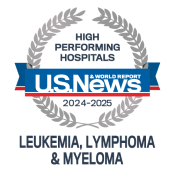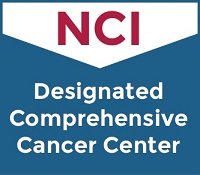CAR T Cell Therapy for Lymphoma and Leukemia
Harnessing the body's own immune system to recognize and attack cancer cells, known as immunotherapy, is one of the most promising cancer research and treatment methods of this century.
The University of Maryland Greenebaum Comprehensive Cancer Center is proud to offer a highly specialized and highly personalized form of immunotherapy - CAR T-Cells - to treat non-Hodgkin lymphoma.
UMGCCC is just one of a limited number of centers across the country offering customized cellular therapies, specifically Chimeric Antigen Receptor T cells, or CAR T cells. These individualized cell therapies are Yescarta, and Kymriah, approved by the FDA to treat certain types of large B-cell lymphoma. Also, Kymriah is FDA-approved to treat acute lymphocytic leukemia, B-cell in the adolescent and young adult age group of 18-25.
In addition, Tecartus was recently FDA approved for those patients with relapsed/refractory Mantle Cell Lymphoma, and we offer a clinical trial for relapsed/refractory B-cell acute lymphoblastic leukemia.
The customized therapy involves removing immune cells, or T-cells, from the patient and shipping them to a laboratory, where they are genetically modified to produce receptors on their surface called chimeric antigen receptors, or CARS. The receptors enable the T-cells to recognize a protein on the surface of the patient's cancer cells. The modified cells are then infused back into the patient, where they increase rapidly, and seek out and destroy lymphoma cells.
Fifty-one percent of large B-cell lymphoma patients who participated in a multi-center clinical study showed no evidence of cancer after treatment, even though they had received two or more previous therapies that had failed.
UMGCCC has a robust hematologic malignancies research and treatment program, and has years of experience treating patients with engineered T-cell therapy.



